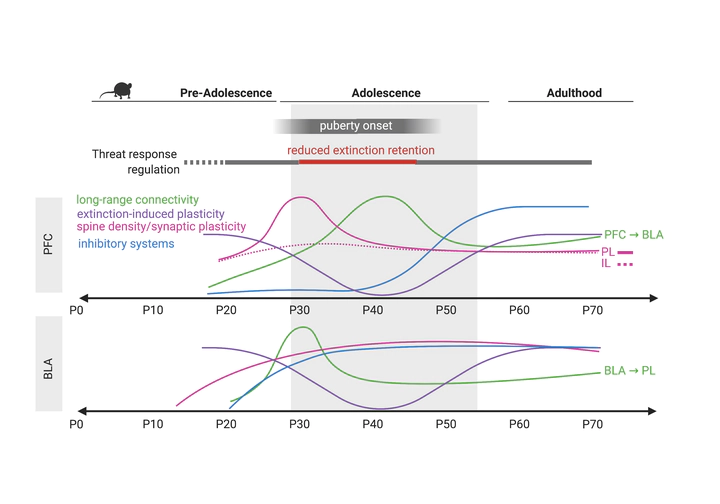An Adolescent Sensitive Period for Threat Responding: Impacts of Stress and Sex
 Image credit: Created in Biorender.com
Image credit: Created in Biorender.com
Abstract
Anxiety and fear-related disorders peak in prevalence during adolescence, a window of rapid behavioral development and neural remodeling. However, understanding of the development of threat responding and the underlying neural circuits remains limited. Preclinical models of threat conditioning and extinction have provided an unparalleled glimpse into the developing brain. In this review we discuss mouse and rat studies on the development of threat response regulation, with a focus on the adolescent period. Evidence of nonlinear patterns of threat responding during adolescence and the continued development of the underlying circuitry is highly indicative of an adolescent sensitive period for threat response regulation. While we highlight literature in support of this unique developmental window, we also emphasize the need for causal studies to clarify the parameters defining such a sensitive period. In doing so, we explore how stress and biological sex affect the development and expression of threat response regulation during adolescence and beyond. Ultimately, a deeper understanding of how these factors interact with and affect developmental trajectories of learning and memory will inform treatment and prevention strategies for pediatric anxiety disorders.